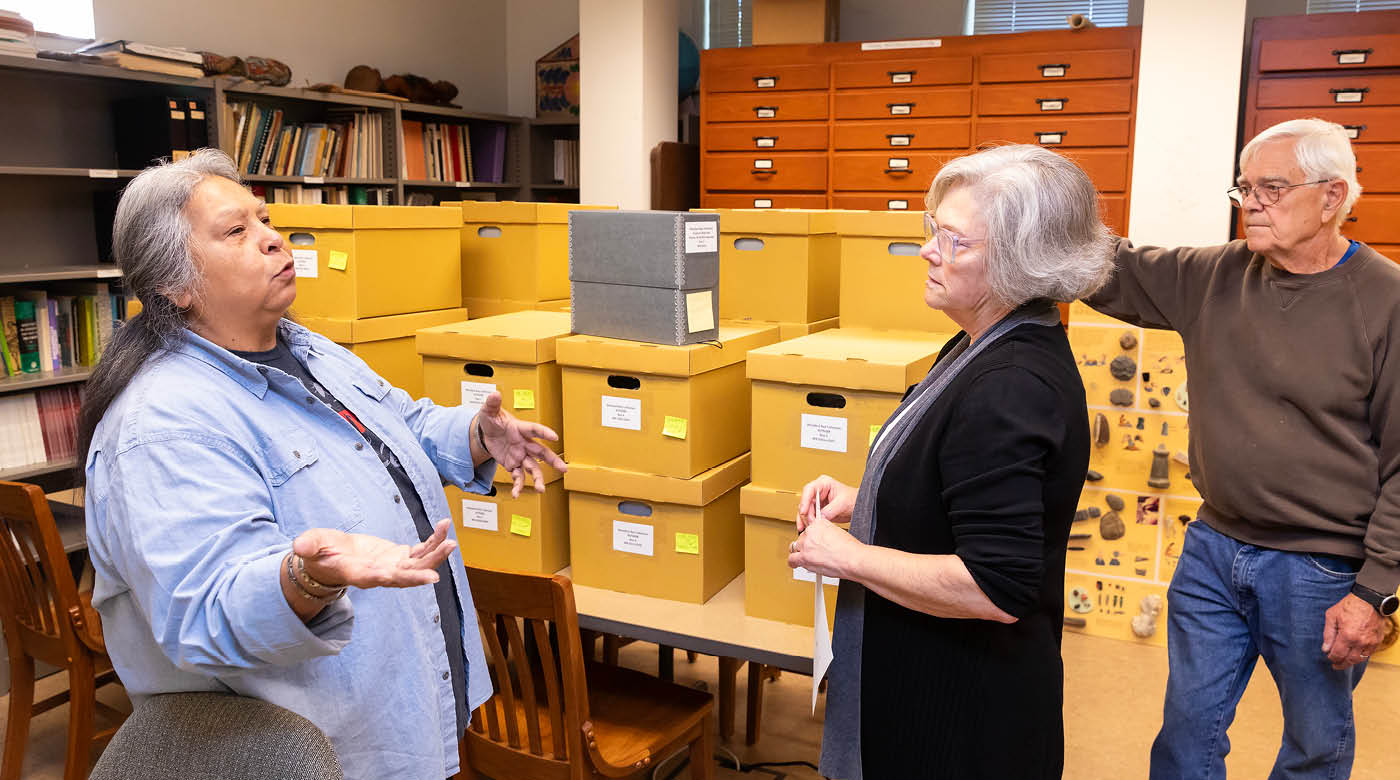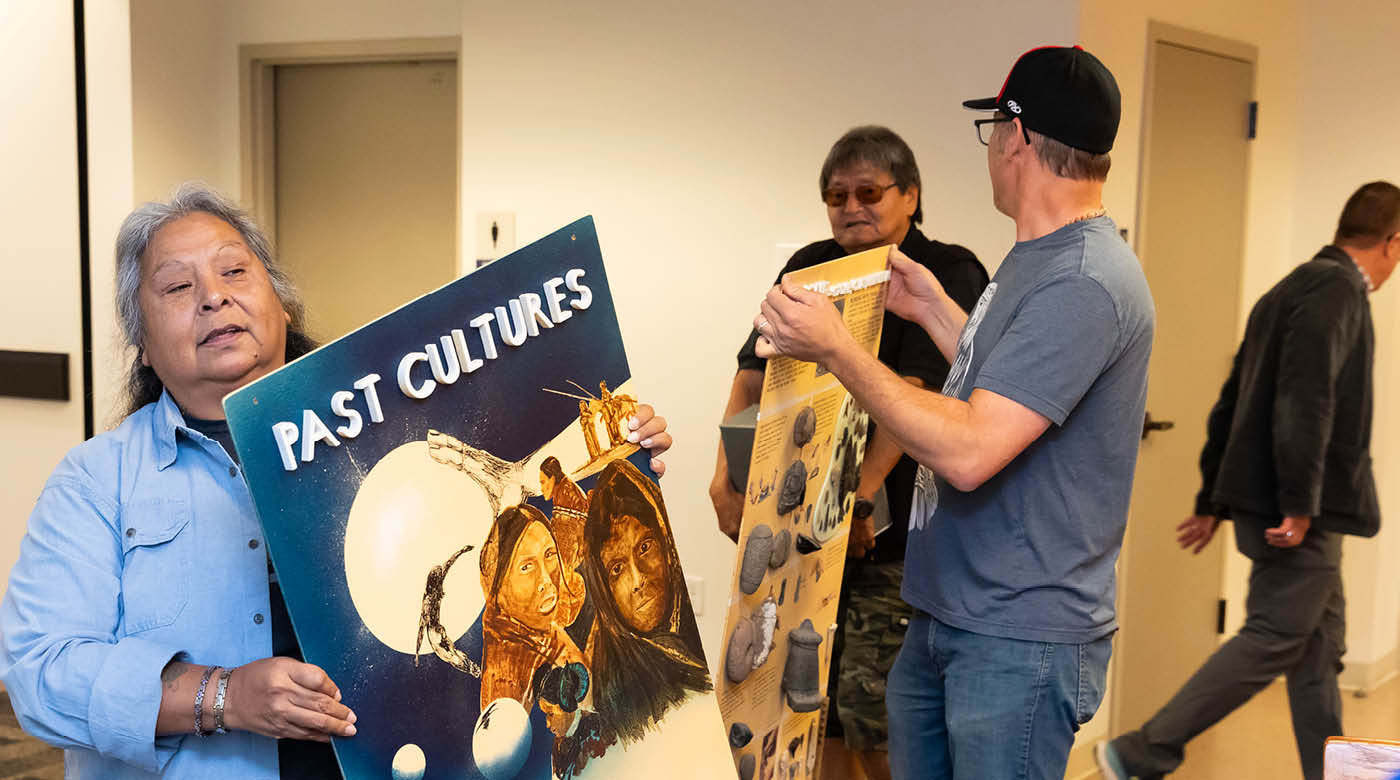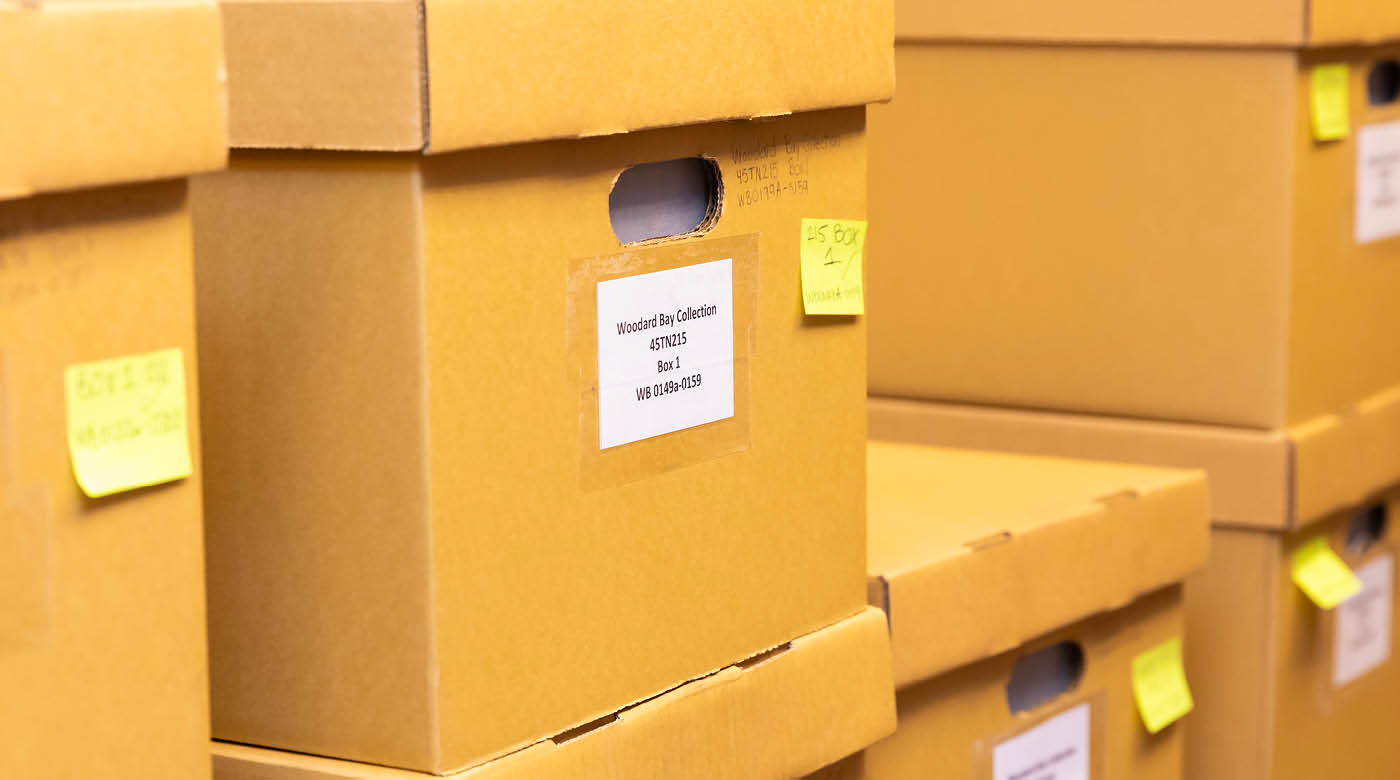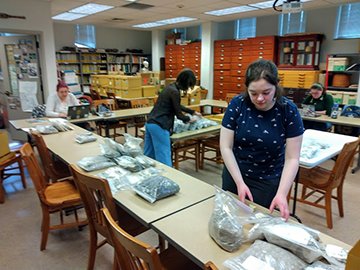PLU Department of Anthropology completes repatriation of materials to the Nisqually Tribe
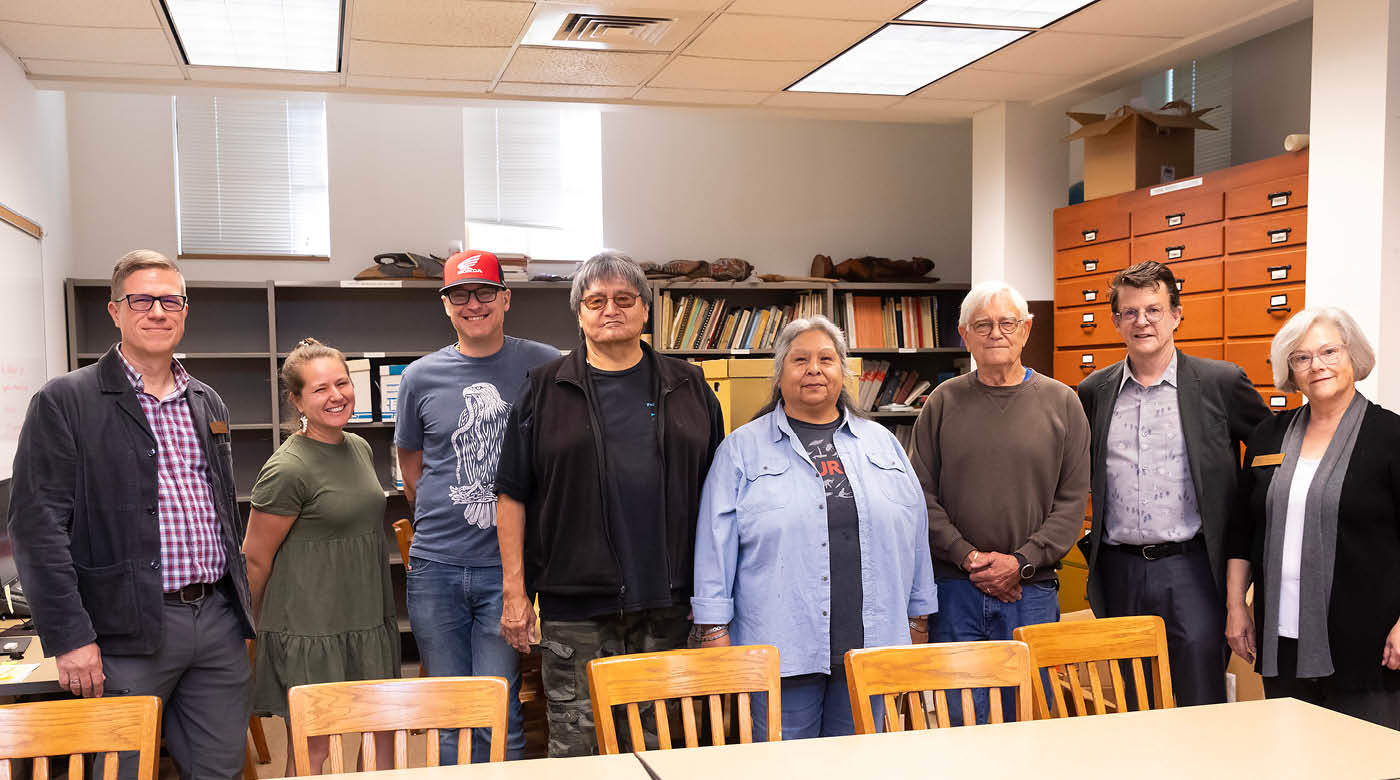
Image: (Left to right) Troy Storfjell (PLU), Nicole Juliano (PLU), Brad Beach (Nisqually Tribe), Merlin Bullchild (Nisqually Tribe), Annette Bullchild (Nisqually Tribe), Greg Burtchard (PLU), Bradford Andrews (PLU), and Patricia Bixel (PLU) pose for a group photo as representatives from the Nisqually Tribe take possession of the Woodard Bay collection from the PLU Department of Anthropology and College of Liberal Studies. (PLU Photo / Sy Bean)
By Zach Powers
PLU Marketing & Communications
Leaders from the Nisqually Indian Tribe visited Pacific Lutheran University earlier this month to take possession of materials from a PLU anthropology excavation done around Woodard Bay, Washington in the 1990s. This repatriation process was led by Associate Professor of Anthropology Bradford Andrews and Faculty Fellow in Anthropology Greg Burtchard who have been working closely with Annette Bullchild (Nettsie), the Nisqually Tribe’s historic preservation officer.
Just minutes from downtown Olympia, the lands around Woodard Bay have a complicated history. Part of the traditional lands of the Nisqually Tribe, the area was seized and occupied by the logging industry from the 1920s until the 1980s. During her visit to campus, Bullchild explained why the materials being repatriated are significant to the tribe.
“It helps us when we’re out there to say ‘we were here and we’re still here,’ but because of the ownership it takes a different road,” Bullchild said. “It helps us, historically, to tell people we would have had camp sites, villages, we would have utilized it for something. Woodard Bay area is loaded with cedar which we would have gathered for different uses.”
This process with the Nisqually Tribe was made possible, in part, by previous collaborations between Burtchard and Bullchild. “I got to know Ms. Bullchild while working at Mount Rainier National Park,” explains Burtchard. “I am honored to consider her my friend and delighted that we could bring the tribe and PLU together in returning the Woodard Bay collection to its rightful keepers.”
The Woodard Bay collection includes shells, matrix (material that surrounds, holds, and supports archeological material), fire-cracked rock, flaked stone tools and a small amount of faunal material. The excavation that recovered these artifacts happened under the auspices of a Washington State Department of Natural Resources permit issued in the early 1990s. PLU students and faculty explored multiple Woodard Bay sites, completing their work on the materials in the mid-1990s.
Defining Repatriation
Repatriation means the return of cultural items or individuals that were removed from their homeland. In the United States, repatriation almost exclusively refers to American Indian, Native Hawaiian and Alaska Native archaeological artifacts and human remains being returned to their tribes from museums and other collections. (Definition from ProjectArchaeology.org)
“This collection is the patrimony of the Nisqually and it comes from their lands,” explained Andrews. “Returning this collection to the Nisqually is simply the right thing to do.”
PLU anthropology faculty and students worked throughout the spring and summer to process the collection and prepare it to be turned over to the tribe. The preparatory work included consulting with PLU Archivist Lauren Loftis and members of the archeological curatorial staff from the Burke Museum at the University of Washington. Two PLU students, Venice Jakowchuk ’23 and Grace Atkins ’23, were trained to prepare and process the items by Brooke Childrey from the National Park Service.
Current faculty and staff of the College of Liberal Studies are completing efforts begun by retired anthropology professor Dave Huelsbeck. Recently, the anthropology department transferred a faunal reference collection to the Makah Cultural & Research Center Museum in Neah Bay. Planning for the next repatriation project is underway and will be a collaborative effort with tribal groups in Arizona.



